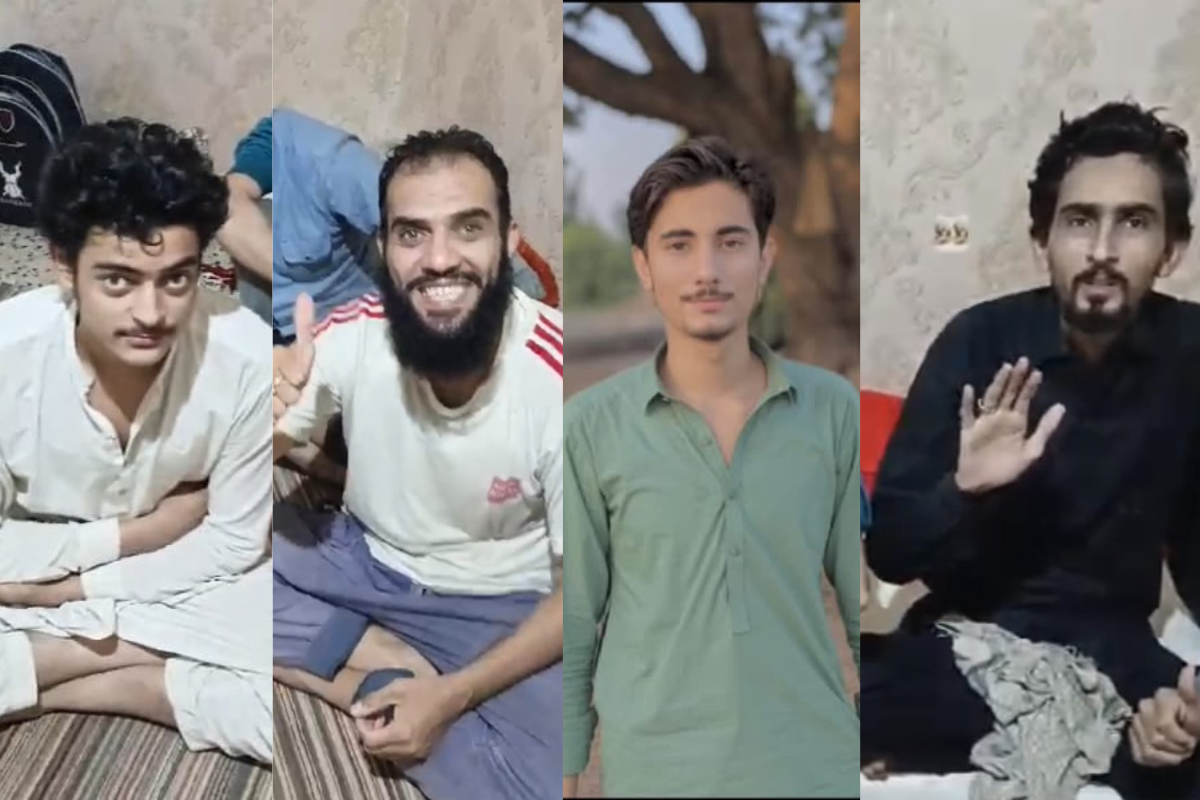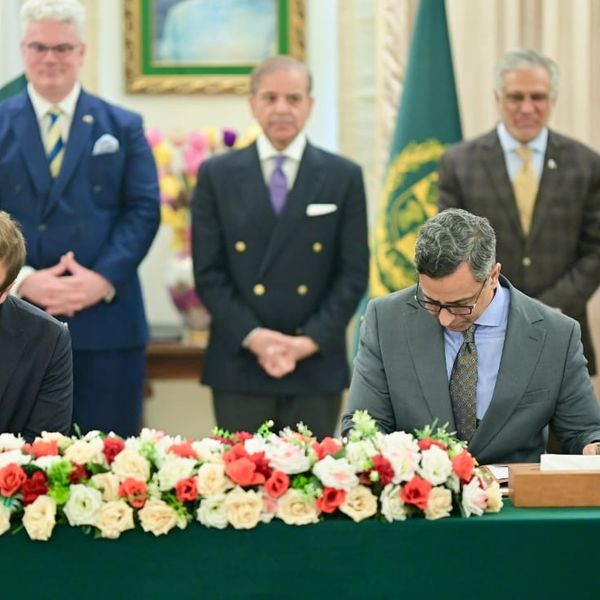How do you hold a funeral without a body?
Families of Libya boat tragedy urge government to secure release of bodies, repatriate rescued migrants
Kamran Ali
Correspondent Nukta
Kamran Ali, a seasoned journalist from Khyber Pakhtunkhwa, Pakistan, has a decade of experience covering terrorism, human rights, politics, economy, climate change, culture, and sports. With an MS in Media Studies, he has worked across print, radio, TV, and digital media, producing investigative reports and co-hosting shows that highlight critical issues.

A compilation of images showing the four cousins who were victims of the recent Libya Boat Tragedy. The image, from left to right, shows Hamraz (rescued), Ismail (rescued), Anis (died), and Abrar (missing).
Nukta
The family of Anis Khan, one of 16 Pakistanis who died in a boat capsizing off Libya, faces a painful dilemma: how do you hold a funeral without a body?
In Darmangi, a quiet neighborhood in the northwestern city of Peshawar, the family’s hopes for a better future were shattered by a tragedy that unfolded thousands of miles away.
"There is no body to mourn, yet the grief is overwhelming as people come to offer their condolences,” said Shah Zaman, a relative at the funeral.
Four young men from the same family—cousins who dreamed of a better life beyond Pakistan—paid human smugglers to take them to Europe.
Anis, Ismail, Ibrar, and Hamraz first flew to Dubai before heading to Libya, according to their relative Noor Muhammad.
"It was only when they reached Libya that they told their parents about their plan to cross into Europe by boat," Muhammad told Nukta.
"Out of desperation, the family took loans and paid the agents,” he added.
“But in the end, they lost not just the money—they lost their children too.”
- YouTubewww.youtube.com
Perilous journey
Human smugglers arrange fake documents and tourist visas for migrants hoping to reach Libya, a country scarred by years of civil war. From there, migrants attempt to cross the Mediterranean to Italy, often in overcrowded, unsafe boats.
For the four young men aboard the ill-fated boat that capsized last week, the promise of a better life in Europe drowned out the warning signs they should have heeded.
Ibrar remains missing. Ismail and Hamraz were rescued but are now detained in Libya.
Like many Pakistanis, Muhammad said his cousins had few options for making a living in their homeland.
"There are no jobs, no justice, no peace.”
While inflation has eased over the past year, Pakistan continues to struggle with rapid population growth, political instability, and mounting foreign debt.
Families of the victims are now pleading with the Pakistani government to help them reach their loved ones.
Kurram’s exodus
At least 37 survivors were rescued, 16 bodies recovered, and 10 remain missing, according to Pakistan's Foreign Office. As many as 63 Pakistanis were on board.
Among the deceased, 14 were from Kurram, a district plagued by years of sectarian violence.
“The situation in Kurram has been deteriorating for years due to terrorism and sectarian strife. Whether young or old, men or women, everyone wants to escape,” said Shujat Hussain, a resident speaking to Nukta. “It’s not just about seeking a better life—it’s about survival. People are desperate to leave because they see no future here.”
Kashif Bangash, who runs an education consultancy firm, said a lack of opportunities is pushing Pakistan’s educated class abroad.
"Despite their qualifications, many struggle to find suitable jobs, while the less educated see no future here and look to Europe for a better life," he told Nukta.
Crackdown on human smuggling
Pakistan's Federal Investigation Agency (FIA) has ramped up its crackdown on human smugglers after a surge in reported boat wrecks off Libya’s coast.
Key human smugglers were arrested in multiple raids in Bajaur, near the Pakistan-Afghanistan border, FIA official Amjid Ali told Nukta.
"Among those arrested was Habib Ur Rehman, who received PKR 3.7 million ($13,200) from victim Syed Shahzad Hussain, who perished in the tragedy," he said.
Based on Rehman’s information, authorities have made several high-profile arrests linked to smuggling networks in Libya and Italy.
"During the operations, four mobile phones with incriminating evidence—videos, photos, voice chats, and bank transactions—were recovered, and three bank accounts were frozen," Ali added.
More than 2,600 Pakistanis attempted to migrate through Libya last year, accounting for 5% of all arrivals in the country, according to the UN Migration Agency. The Libya route has become more popular after Turkey imposed stricter migration laws.
*An earlier version of the article said 63 Pakistanis died in the boat wreck. The figure has been corrected.










Comments
See what people are discussing